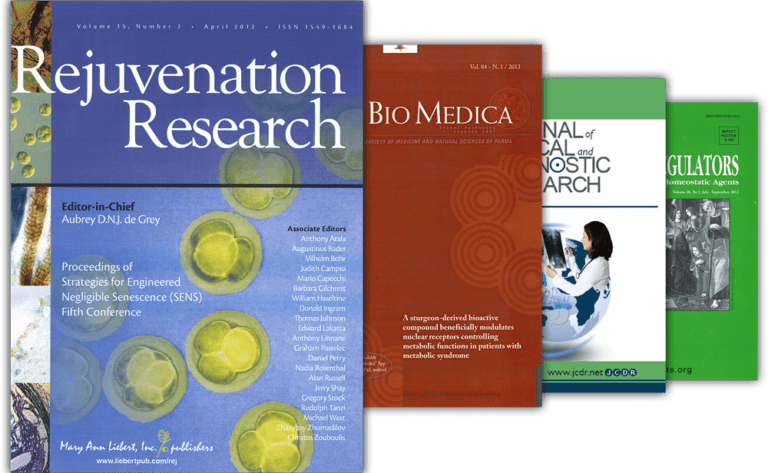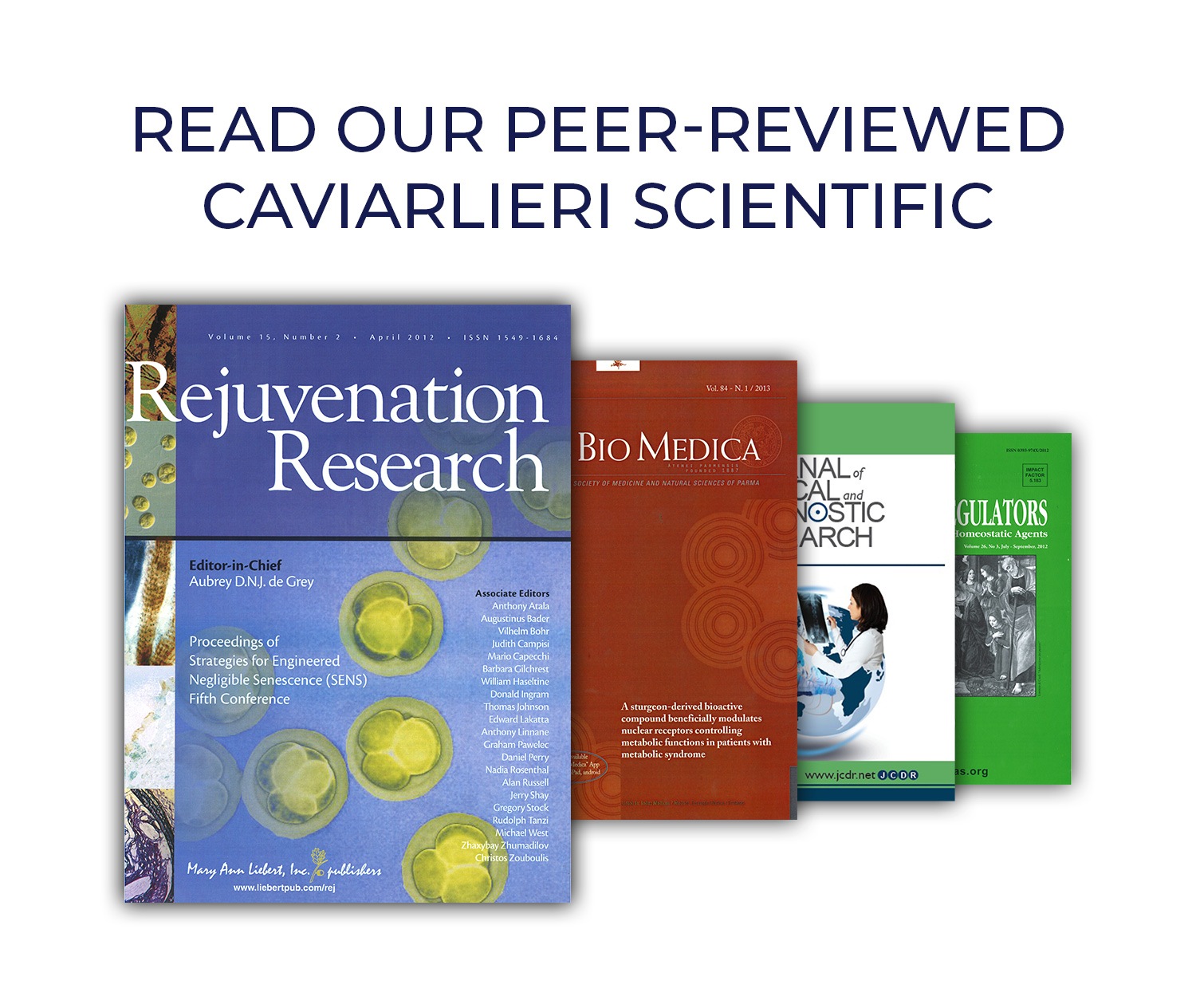Recovery From The Long Term and Non Activated Side Effects of COVID-19 known as Long COVID 19
Caviarlieri | Published June 02, 2021
It has been more than a year after COVID-19 erupted into the world causing shock and impotency to the medical world as it sought to find the vaccine to combat it.
Today still many mysteries persist about the disease: why do some people get so much sicker than others? Why does lung damage sometimes continue to worsen well after the body seems to have cleared the SARS-CoV-2 virus? And what is behind the extended, multi-organ illness that lasts for months in people with ‘long COVID’?
Most people who have coronavirus disease 2019 (COVID-19) recover completely within a few weeks. But there are many who still experience adverse symptoms after their initial recovery and even for those who had experienced only the mild versions of the disease.
These conditions are known as post-COVID-19 syndrome or “long COVID-19.” Post-COVID conditions are a wide range of new, returning, or ongoing health problems people can experience more than four weeks after first being infected with the virus that causes COVID-19. The long-term effects of COVID-19 are estimated to affect 25 to 30 percent of people who have had the disease and a wide swath of lingering health issues continue to plague more than 70% of patients who were once severely ill and were hospitalized.
“Early on, we completely ignored the long-term consequences of getting sick with this virus,” said study senior author Dr. Steven Goodman, a professor of epidemiology and population health and medicine at Stanford University. “People were being told this was all in their heads and it is imagination. The question now isn’t is this real, but how big and serious is the problem.”
To determine that, Dr Goodman’s team analyzed 45 studies that were published between January 2020 and March 2021 in various reputed medical publications. The studies included more than 9,700 COVID-19 patients of which 83% were hospitalized.
They found that 72.5% of study participants reported still having at least one of the 84 persistent symptoms or clinical signs, with the most common being fatigue (40%), shortness of breath (36%), sleep disorders (29%), inability to concentrate (25%), depression and anxiety (20%), and general pain and discomfort (20%).
Other problems reported by patients included loss of taste and smell, memory loss, chest pain and fevers.
“If something in the order of 70% of those coming out of moderate to serious COVID-19 are showing persisting symptoms, that is a huge number,” Goodman said in a Stanford news release. “It’s astonishing how many symptoms are part of what’s now being referred to as long COVID.”
The study was published May 26 -2021 in the journal JAMA Network Open.
Young and Healthy People can also Suffer from Lingering Covid-19 Symptoms
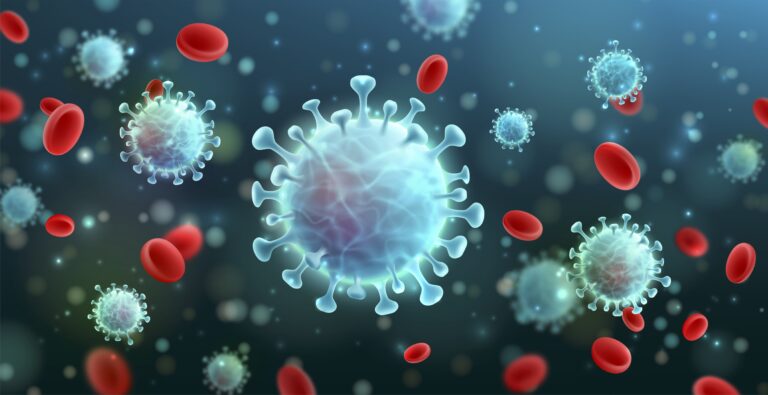
What is confounding and unsettling is that not only the older people and people with many serious medical conditions are likely to experience persistent COVID-19 symptoms. Even young, otherwise healthy people can feel unwell for weeks to months after the infection.
Long COVID can happen to anyone who has had COVID-19, even if the illness was mild, or they had no symptoms. People with long COVID report experiencing different combinations of the following residual symptoms.
Long COVID Residual Symptoms
- Tiredness or fatigue
- Difficulty in mental concentration and thinking
- Headache
- Loss of smell or taste
- Dizziness on standing
- Fast-beating or pounding heart (also known as heart palpitations)
- Chest pain
- Difficulty breathing or shortness of breath
- Cough
- Joint or muscle pain
- Depression or anxiety
- Fever
- Symptoms that get worse after physical or mental activities
- Sleep problems
Organ damage caused by COVID-19
Although COVID-19 is seen as a disease that primarily affects the lungs, it can damage many other organs as well. This organ damage may increase the risk of long-term health problems. Organs that may be affected by COVID-19 include the heart, lung, kidney, skin, and functions of the brain.
Lungs
The type of pneumonia often associated with COVID-19 can cause long-standing damage to the tiny air sacs (alveoli) in the lungs. The resulting scar tissue can lead to long-term breathing problems.
Heart
Imaging tests taken months after recovery from COVID-19 have shown lasting damage to the heart muscle, even in people who experienced only mild COVID-19 symptoms. This may increase the risk of heart failure or other heart complications in the future.
Brain
Even in young people, COVID-19 can cause strokes, seizures and the Guillain-Barre syndrome — a condition that causes temporary paralysis. COVID-19 may also increase the risk of developing Parkinson’s disease and Alzheimer’s disease.
Multiorgan Disease Syndrome

Some adults and children also experience multisystem inflammatory syndrome (MIS) in which some organs and tissues become severely inflamed.
Multisystem inflammatory syndrome in children (MIS-C) is a serious condition that appears to be linked to coronavirus disease 2019 (COVID-19). Most children who become infected with the COVID-19 virus experience only a mild illness.
MIS-C is considered a syndrome — a group of signs and symptoms, not a disease — because much is unknown about it, including its cause and risk factors. While different, MIS-C has some of the same symptoms as other rare childhood conditions such as Kawasaki disease and toxic shock syndrome. Children with MIS-C may also have thrombosis (blood clots), poor heart function, or kidney injury.
Rarely do some adults develop signs and symptoms similar to MIS-C. This new and serious syndrome, called multisystem inflammatory syndrome in adults (MIS-A), occurs in adults who were previously infected with the COVID-19 virus and many didn’t even know it. MIS-A seems to occur weeks after COVID-19 infection, though some people have a current infection.
Autoimmune Diseases
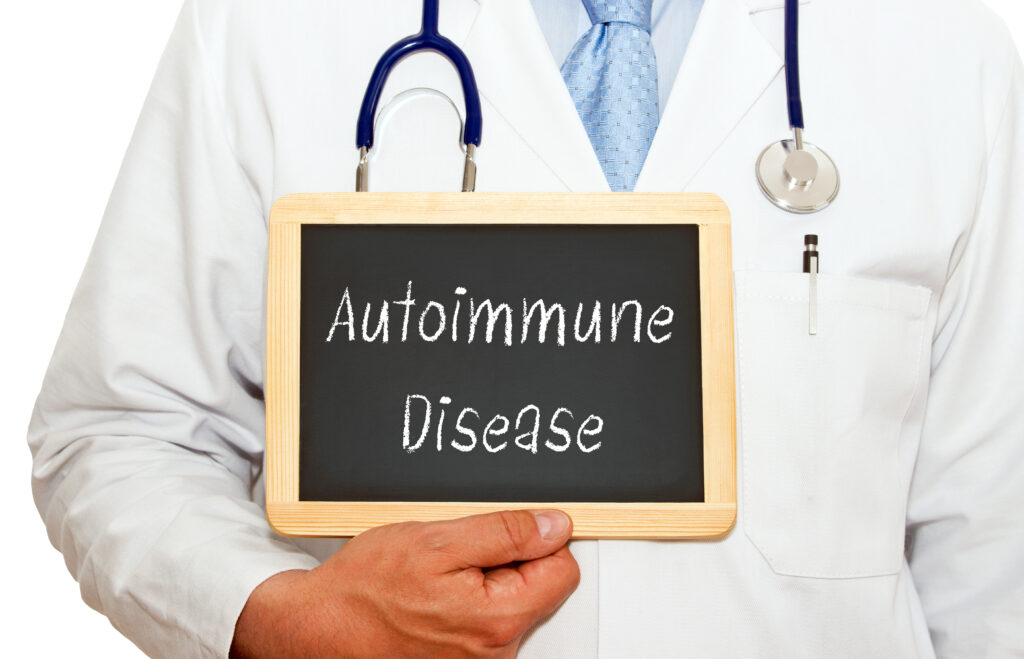
Early in the pandemic, researchers suggested that some people have an overactive immune response to COVID infection. Immune-system signaling proteins called cytokines can ramp up to dangerous levels, leading to ‘cytokine storms’ and damage to the body’s own cells. Clinical trials have now shown that some drugs that broadly dampen immune activity seem to reduce death rates in critically ill people, if administered at the right time.
But scientists studying COVID are increasingly also highlighting the role of “autoantibodies”. Autoantibodies are rogue antibodies that attack either elements of the body’s immune defenses or specific proteins in organs such as the heart. In contrast to cytokine storms, which tend to cause systemic, short-duration problems to our organs, autoantibodies are thought to result in targeted, longer-term damage, says prominent immunologist Akiko Iwasaki at Yale University.
Even healthy people make autoantibodies, but not generally in large amounts, and the molecules don’t usually seem to cause damage or attack the immune system. Yet researchers now also have evidence that nefarious autoantibodies do have a role in many infectious diseases.
A growing number of studies suggest that some of these questions might be explained by the immune system mistakenly turning against the body — a phenomenon known as autoimmunity.
There are several theories to explain how autoimmunity might emerge from COVID and other infections. Some people might be predisposed to producing autoantibodies that can then wreak havoc during an infection. Alternatively, infections could even trigger the production of autoantibodies. If researchers can establish the link, they might then be able to come up with avenues for treatment, both for the repercussions of COVID and for other diseases caused by viruses.
Blood clots and blood vessel problems
COVID-19 can make blood cells more likely to clump up and form clots. While large clots can cause heart attacks and strokes, much of the heart damage caused by COVID-19 is believed to stem from very small clots that block tiny blood vessels (capillaries) in the heart muscle.
Other parts of the body affected by blood clots include the lungs, legs, liver and kidneys. COVID-19 can also weaken blood vessels and cause them to leak, which contributes to potentially long-lasting problems with the liver and kidneys.
Problems with mood and fatigue
People who have severe symptoms of COVID-19 often have to be treated in a hospital’s intensive care unit, with mechanical assistance such as ventilators to breathe. Simply surviving this experience can make a person more likely to later develop post-traumatic stress syndrome, depression and anxiety.
Because it is difficult to predict long-term outcomes from the new COVID-19 virus, scientists are looking at the long-term effects seen in related viruses, such as the virus that causes severe acute respiratory syndrome (SARS).
It is well known that many people who have recovered from SARS which plagued us 18 years ago have gone on to develop chronic fatigue syndrome, a complex disorder characterized by extreme fatigue that worsens with physical or mental activity but doesn’t improve with rest. The same may be true for people who have had COVID-19.
Many long-term COVID-19 effects still unknown
Much is still unknown about how COVID-19 will affect people over time, but research is ongoing. Researchers recommend that doctors closely monitor people who have had COVID-19 to see how their organs are functioning after recovery.
Though data is slowly emerging, researchers have yet to study sufficient numbers of patients over a long duration to gauge the full range of long-term effects.
How to recover from long term side effects of Covid-19 and develop sustainable immune system over time?
Many experts believe that the main reason behind Covid-19’s long term malefic consequences is related to the autoimmune response of the body. When a patient is infected, he may develop an overactive immune response. These long-term side effects might be due to the body attacking itself, an issue which vaccination is currently unable to resolve.
Caviarlieri – Swiss Caviar Cellular Therapy Food Supplement
Caviarlieri is a powerful multi-faceted cellular therapy treatment system that is backed by Science. It has several studies published in peer-reviewed journals and the benefit claims are therefore evidence based like:
- significant increase in energy levels (reduce chronic fatigue)
- mood elevation (alleviate depression)
- reduction in joint pain
- enhancement of sleep quality
- improving mental focus
- reducing inflammation
- supporting immune health
By providing essential nutrition at the cellular level, Caviarlieri triggers protein synthesis and stimulates our own body’s healing system to repair and renew our cells versus the damaged cells for optimal and improved health. By enhancing cellular renewal and repair against damaged cells, it will potentially help mitigate adverse symptoms and side effects and accelerate the recovery process.

Caviarlieri is formulated with potent bioactive peptides like Sturgeon Caviar DNA cellular extract and high quality marine peptides and marine collagen peptide which are extremely rich in nutrition and can be useful for those with a compromised immune system.
Manufactured using a proprietary Swiss cold extraction technology in Switzerland – Cellularix, its ingredients are kept “active” so that the chemical integrity and potency of the micro nutrients in the capsules are not destroyed or compromised. This will help optimize our absorption of the micro nutrients into the body and maximize the outcomes and results for improved health.
One of the key ingredients of Caviarlieri is Marine Collagen peptides. These peptides are known to modulate 3 key factors for effective immune response – Inflammation, Tissue Damage, Oxidative Stress. For people with a compromised or dysfunctional immune system, immune modulating is extremely vital.
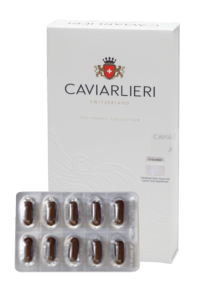
The scientific studies on Caviarlieri published in peer reviewed journals have proven that it has powerful antioxidant properties which can potentially prevent damage to the immune cells by neutralizing free radicals. Free radicals are substances in the environment that can damage cells and reduce immunity. Supplementing our body with Caviarlieri can also help to increase the activation of cells involved in regulating our immunity.
Why is Reducing and Controlling Inflammation Important For Covid-19 Recovery?
Autoimmune diseases and many degenerative diseases are associated with inflammation.
A renowned virologist at the University of Oxford, William James has suggested that Covid-19 may potentially be defined as a 2-phase activity, whereby it starts in the upper respiratory tract and then migrates deep into the lung and the critical factor is that the virus is able to travel around the body, potentially causing serious inflammation.
Controlling the inflammatory response is important as targeting the virus to mitigate the adverse side effects of Covid-19.
According to a study entitled “Trials of anti-tumour necrosis factor therapy for COVID-19 are urgently needed”, published in The Lancet Journal, it was discovered that the TNF (tumour necrosis factor) is present in the blood and disease tissues of patients with COVID-19 .
Caviarlieri is scientifically proven to help reduce the Tumour Necrosis Factor Alpha which is an important inflammatory biomarker for metabolic syndrome conditions. In addition, Caviarlieri can also reduce the C-reactive protein (CRP), a blood test marker for inflammation in the body. CRP is classified as an acute phase reactant, which means that its levels will rise in response to inflammation.
There are also several current and ongoing studies which indicate that Caviarlieri triggers the epigenetic mechanisms of the cells to activate gene expression for inflammation reduction which will help alleviate the onset of any of the risks associated with the diseases as a consequence of metabolic syndrome.
The peer reviewed studies show that the intervention with Caviar DNA Extract (LD-1227) has shown in human chondrocytes that Caviarlieri could effectively inhibit IL-1β-induced proliferation and inflammatory reactions via inhibited activation of the transcription factor NF-κB pathway. Caviarlieri contains collagen elastin, protein and a rich array of other smaller unsaturated fatty acids, and structural phospholipids which may exert a synergistic action on multiple mechanisms of the inflammatory cascade.
Caviarlieri is not a drug but a potent pharmaceutical grade food supplement and the list of Scientific Studies published in PubMed and Europe PMC are as follows:
1. Acta Bio Medical/ Official Journal of the Society of Medicine and Natural Sciences of Parma Vol 82 – N2/2012
Title of the report: Improving Sperm Quality and Spermatogenesis through a Bioactive Marine Compound: an experimental study
2. Journal of Biological Regulators and Homeostatic Agents ISSN – 0393-974X/2012
Title of the report: Effective Properties of a Sturgeon-Based Bioactive Compound on Stress-Induced Hippocampal Degeneration and on In Vitro Neurogenesis
3. Acta Bio Medical / Official Journal of the Society of Medicine and Natural Sciences of Parma Vol 84-N1/2013
Title of the report: Testing a novel bioactive marine nutraceutical on osteoarthritis patients
4. Acta Bio Medical / Official Journal of the Society of Medicine and Natural Sciences of Parma Vol 82 – N2/2012
Title of the report: A Sturgeon-derived Bioactive Compound beneficially modulates nuclear receptors controlling metabolic functions in patients with Metabolic Syndrome
5.Rejuvenation Research Volume 15 Number 2, April 2012
Title of the report: Beneficial Modulation from a High-Purity Caviar-Derived Homogenate on Chronological Skin Aging”
6. Journal of Biological Regulators and Homeostatic Agents ISSN – 0393-974X/2012
Title of the report: Beneficial Effect of a Sturgeon-Based Bioactive Compound on Gene Expression of Tumour Necrosis Factor-alpha Matrix Metalloproteinases and Type-10 Collagen in Human Chondrocytes
7. Journal of Clinical and Diagnostics Research V 8(11) November 2014
Title of the report : A Double- Blind, RCT Testing Beneficial Modulation of Bdnf in Middle-Aged, Life Style-Stressed Subjects : A Clue to Brain Protection
8. Rejuvenation Research Volume 17 Number 2, April 2012 (Europe PMC)
Title of the report: Protective Effect of a Fish Egg Homogenate Marine Compound on Arterial Ultrastructure in Spontaneous Hypertensive Rats
Why is Caviarlieri a safe and potent option?
Caviarlieri is not a drug but a oral food supplement approved by the Swiss Public Health Authority. Unlike drugs or medications, there are no side effects for long term use. Caviarlieri is also certified by “Cologne List” as it is free of steroids, hormones and stimulants which makes it safe for long-term use.
It is important to remember that healing and recovery begins at the cellular level.
Subject
Recent Posts
-
The Amazing Benefits of Highly Polymerized Fish Collagen Peptides with Elastin – Caviarlieri
-
The World’s Most Effective Caviar DNA Extract with Marine Bioactive Peptides
-
Are Supplements effective for Joint Pain?
-
Why Is Sustainable Immunity Important for Your Long-Term Health
-
What is your “Body Age” – Biological Age?

